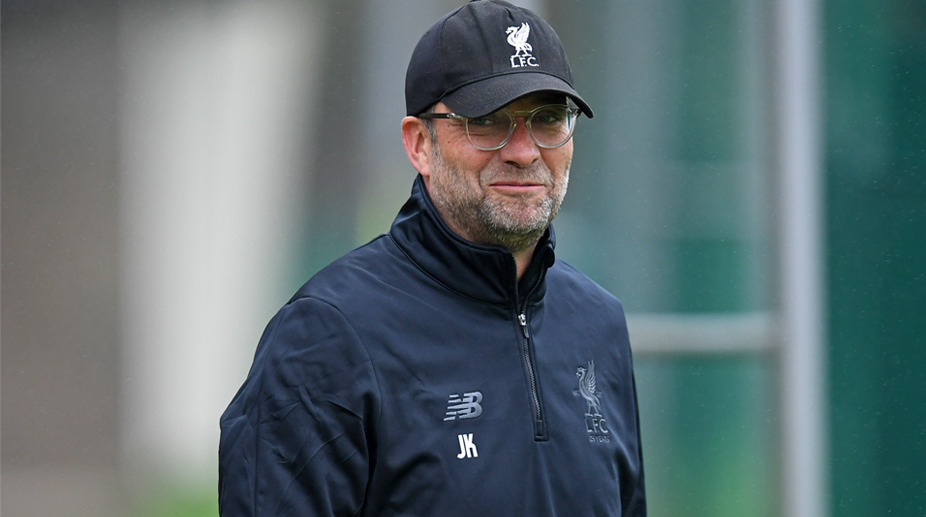As thousands of British fans head to Moscow for Champions League matches involving Manchester United and Liverpool, Russia faces a crucial test of its security measures just months ahead of the 2018 World Cup.
Some 2,000 British fans are expected to arrive for matches on Tuesday and Wednesday against Moscow teams known for problems with hooliganism and racism in the stands.
Advertisement
Liverpool play Spartak Moscow on Tuesday and Manchester United plays CSKA Moscow on Wednesday, both kicking off at 1845 GMT (Thursday, 0015 IST).
The head of the Russian Football Union’s security committee, Vladimir Markin, warned them to behave or face an extended stay behind bars.
“I don’t want to scare anyone but I warn those who plan to come here not to support their side and see the country but to commit hooliganism: the law is the same for all, not just for Russians,” Markin told TASS state news agency on Sunday.
“Those who break it will face a suitable punishment, possibly in the form of a long stay in Russia, in conditions our guests won’t like.”
The influx of supporters raises the spectre of a repeat of the violence at Euro-2016 in France when street battles erupted in central Marseille ahead of the match between England and Russia on June 11 — 35 people were injured and three Russian hooligans jailed.
Russia has vowed to ensure fans’ safety when it hosts the World Cup in 2018 and has cracked down on its own hooligans who model themselves on the hooligan gangs that dogged English football in the past.
For the Liverpool and Manchester United games, tightened controls will be in place at stadium entrances and nearby metro stations — as happened when Russia hosted the Confederations Cup in June and July without incident.
A multi-lingual telephone help line (Fans Hotline 8-800- 775-76-88) is set to open 24 hours between Monday and Wednesday to offer British fans’ legal support if needed.
Both Liverpool and Manchester United have warned fans to be on their best behaviour.
“You can expect there to be a visible police presence wherever groups of LFC and Man United fans congregate,” a Liverpool statement said.
Manchester United called for “impeccable” behaviour from its supporters and advised them not to “attract attention” and to avoid wearing the team’s colours in public.
In April, President Vladimir Putin approved new legislation toughening punishments for foreign fans responsible for crowd trouble at sports events.
The legislation makes it possible to bar known foreign hooligans or those suspected of planning trouble from entering Russia.
The law increases the fine for such offences to 50,000 rubles ($868, €733 euros) and also makes them punishable by up to 15 days of detention in police cells followed by deportation.
After the Marseilles clashes, the Russian interior ministry’s counter-extremism division also cracked down on Russian fans, leading to more detentions and convictions.
“The atmosphere at football matches has on the whole improved. You feel safer,” said one Spartak fan, who gave his name as Alexander.
“Even if the number of aggressive fans hasn’t gone down, the clubs have learnt to organise matches better,” the 24-year-old said, praising a decision to reinforce crowd control using volunteers in plain clothes rather than “the police, who irritate the fans.”
Nevertheless Spartak supporters fired a flare at the German referee during a match with Slovenia’s Maribor earlier in September.
UEFA fined the Russian club €60,000 and banned it from selling tickets for its next away match.
On Friday, Spartak’s Italian manager Massimo Carrera urged fans “not to repeat such actions,” TASS reported.
“I hope that they will take seriously the risk of not being allowed into the stadium next time,” Carrera said.
Ahead of the World Cup, Russia wants to avoid a repeat of serious fan violence seen in the past.
In 2002, after Russia was knocked out of the World Cup by Japan, fans watching on an outdoor screen near the Kremlin went on a rampage, killing one and wounding dozens, and setting cars on fire.
In 2010, thousands of fans rioted on the street after a Spartak supporter was shot dead in a fight between members of Russian and North Caucasus ethnic groups.











